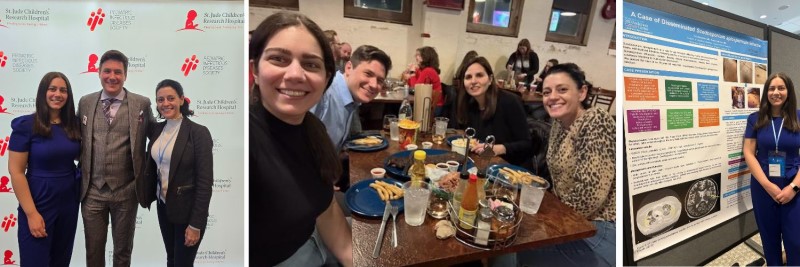Curriculum Overview

Three years of progressive educational experience provides subspecialty residents with the essential skills that enable them to provide optimal care and consultation for pediatric patients with infectious diseases. Clinical and technical training involves a structured curriculum and block schedule that provides strategic teaching, research, and consultative experiences. The educational program encompasses basic concepts in immunology, epidemiology, microbiology, clinical pharmacology, statistics, and infection control as they relate to patient care and training in the prevention of infectious diseases.
Conferences
The Department of Pediatrics Fellows Core Curriculum Conference Series provides a structured curriculum for all pediatric fellows, addressing universally relevant topics such as research design, grant writing, presentation and teaching skills, quality improvement initiatives, principles of evidence-based medicine, professionalism, and more.
Weekly conferences include:
- Pediatric/Adult Infectious Disease Clinical Conference
- City-Wide Infectious Disease Conference held in conjunction with Baylor College of Medicine
- Infectious Disease Journal Club
- Infectious Disease research conferences
- Pediatric Grand Rounds